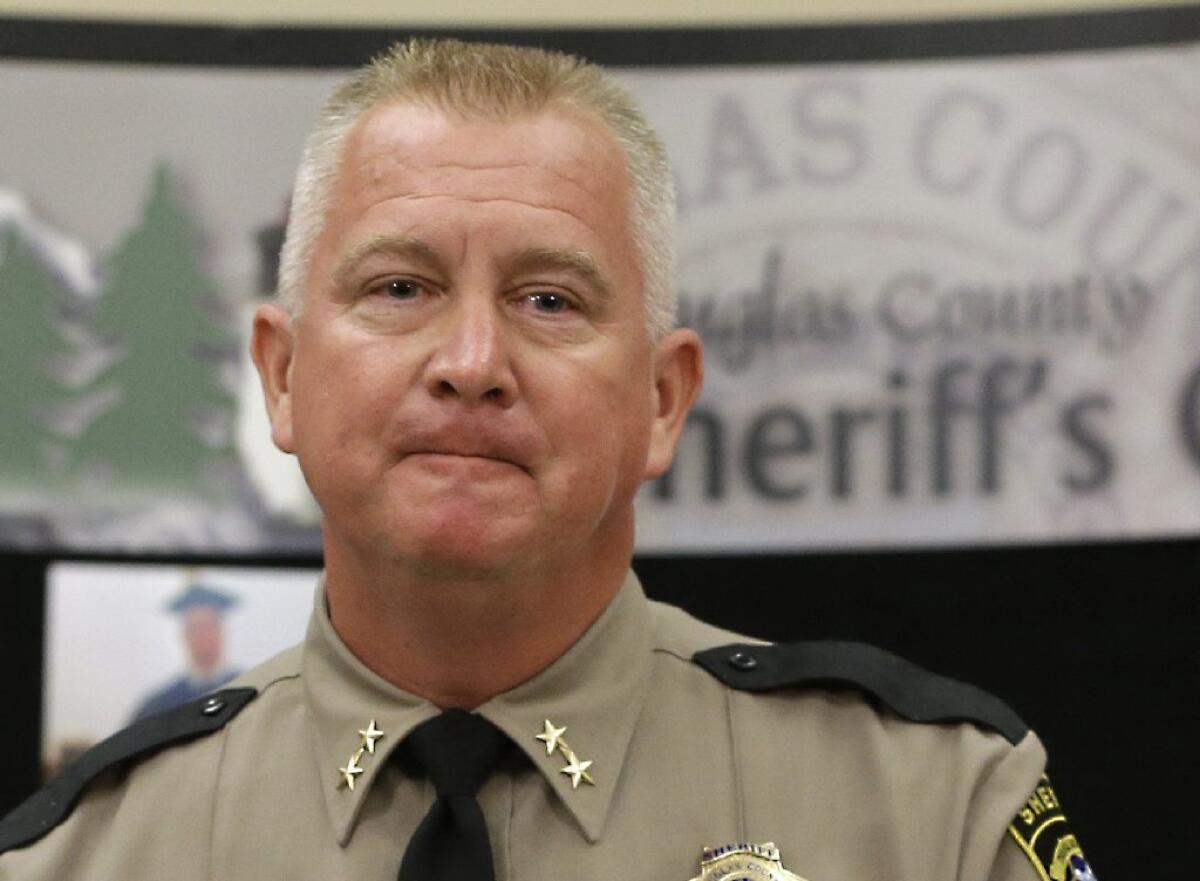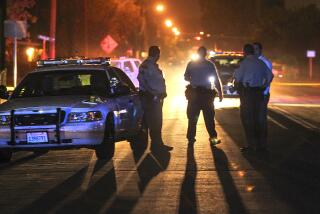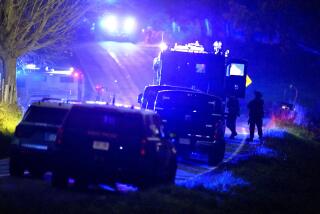Opinion: Why we should use the Oregon gunman’s name

Douglas Conty Sheriff John Hanlin has refused to use the name of the man who shot to death nine people at an Oregon community college.
- Share via
Almost as predictably as mass killings set off new debate about gun control, they now raise calls for omitting the gunman’s name from news stories, discussions and press conferences. Talk only about the victims, not the killer, people say. They call on the media to take part in erasing this bit of information from the records, on the grounds that society should deny the gunman his 15 minutes of fame and avoid future killings by showing others that they also would remain anonymous. Douglas County Sheriff John Hanlin has refused to say the name of Christopher Harper-Mercer, the man who killed nine people at a community college in Roseburg, Ore.
And yes, I’m using the name. Because attempting to erase facts, even facts that pain and anger us, doesn’t make them go away. This is an understandable but futile attempt to get back at the killer, who in a sense escaped justice by killing himself. It provides the illusion of taking action against him, though it is too late for any such action.
Talking about the victims, extensive coverage of their personalities, their dreams, the families they leave behind — all of this is valuable. But let’s not pretend that a vengeful attempt to blot the killer from memory will make anything better. We wish he’d never been born. But we can’t escape the fact that he was, and that his crimes devastated people’s lives — and that he was a person with a name and an identity, however twisted it was. His name is part of the public record; such information has always had an important place in criminal investigations. Imagine if police actually managed to keep the identity secret; people with information about him, or any accomplices, wouldn’t know that they had something potentially useful to share with investigators.
Another line of argument holds that society will somehow prevent future horrors like this by showing other angry, mentally ill would-be killers that they won’t become famous by carrying out their terrible fantasies. That’s not going to work. For one thing, killers know better. The names of perpetrators are public information; they’ll come out, one way or the other. And — these people are, for the most part, angry and mentally ill. These aren’t reasonable decisions they make. It’s not as though they figure they won’t bother destroying lives and dying themselves unless their name is on TV for a few minutes.
History is full of equally horrible tales of evil, and worse. It is our job, as far as we’re able, to tell the stories fully, no matter how much they grieve us, and understand them as well as we can. Only then can we as a society try to prevent them from happening again. That’s a tall order, trying to determine the components of rage and mental illness we can address — and which elements of gun control we are willing to address. It’s a lot more complicated and difficult than trying to take revenge on evil by refusing to name it.
Hiding from a name, attempting to erase elements of history, is as useless as the wizards in the “Harry Potter” books refusing to say the name Voldemort.
Follow the Opinion section on Twitter @latimesopinion
More to Read
A cure for the common opinion
Get thought-provoking perspectives with our weekly newsletter.
You may occasionally receive promotional content from the Los Angeles Times.











